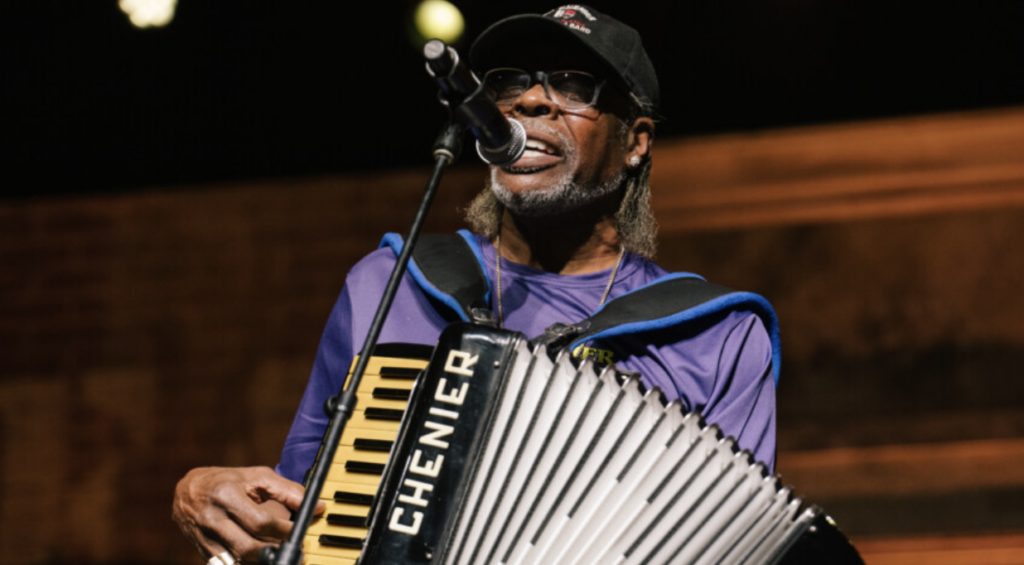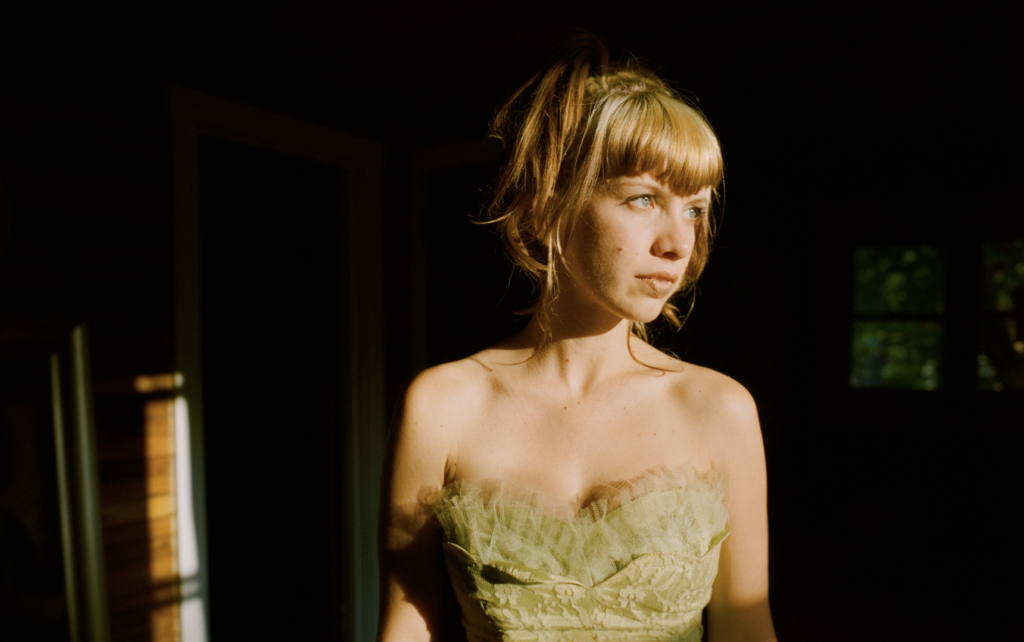Maria Elena Silva on working with her dream guitarist for Dulce
When producer Chris Schlarb asked Maria Elena Silva which guitarists she might want to work with for her new record, the singer/songwriter had one name ready: Marc Ribot. Silva, whose work mixes elements of folk, jazz and rock, had long admired the similarly eclectic and versatile Ribot, who’s played on seminal records with Elvis Costello, Tom Waits and led avaunt-garde rock outfit Ceramic Dog, among various other envelope-pushing endeavors.
“I grew up listening to Ribot, mostly through Costello records, then in my teens through Waits, of course,” Silva says. “He is so easily identifiable — when I was a small child I memorized (however unintentionally) that sound and started noticing him incidentally in other records as I grew older. At some point without me realizing it, he had become the primary guitarist I’d focused on throughout my life. So, when it comes to thinking of him for this record — I think I’d probably been subconsciously thinking of him for years with my music, but this was the first time I actually had real potential for making it happen.”
At first, that potential wasn’t looking so likely. After Silva gave Schlarb her answer, he “laughed and told her to pick someone else,” as he recounted on social media. But, after remembering that drummer Chad Taylor, who’s worked with Schlarb on several excellent projects, has also played for several years with Ribot (as part of a trio with legendary bassist Henry Grimes), he asked Taylor to act as intermediary. After a little back-and-forth and the involvement of management, Ribot flew out to Schlarb’s Big Ego studio in Long Beach, and Silva was making her new record, Dulce with her dream guitarist. Silva was, understandably, just a bit anxious.
“I was very nervous,” she recalls. “(B)ut he went immediately into how much he’d loved the demos for the album and was incredibly encouraging and enthusiastic about the music. He wasn’t going to have any fawning or uneasiness — he was there to do a session just like the rest of the guys.”
Silva soon fell into an easy rapport with Ribot and her other musicians: longtime drummer Scott Dean Taylor, Danny Frankel on auxiliary percussion, and Carey Frank on Hammond organ. And for three songs, Stephen Hodges on additional percussion, giving Dulce, with Ribot, two musicians who’d played on Waits’ milestone 1985 album, Rain Dogs. Hodges had a more direct connection to Schlarb, as he’s a member of the punk band Mssv, with Mike Watt and Mike Baggetta, which has recorded two albums with Big Ego, both released on the house label. “When we were talking about the wilder energy that I wanted to capture with this material, Schlarb suggested bringing him on board, and I was thrilled at the idea,” Silva says.
The “wilder energy” Silva talks about is immediately apparent on the opening track of Dulce, “Love, If It Is So.” While Silva’s smoky voice and fluid melodic phrasing, both hallmarks of her previous album, 2021’s Eros, are still front and center, Ribot’s loose-limbed yet steely guitar gives Silva’s unconventional style a primal, unfettered energy. His bristly tone, atmospheric mutes and gnarly lines grow more intense as the song unspools, gradually pushing the band into a headlong, exhilarating rush. From the start, you can feel him fitting in – the song’s burbling rhythm and air of faded romance seem ideally suited for Ribot’s idiosyncratic flair. And that’s not an accident. “I had written these songs specifically with Ribot and Hodges in mind, so whatever either of them brought along was welcomed,” Silva says. This is in tune with her method, which starts with basic or embryonic song structures that give her musicians plenty of room to stretch out in the studio. She writes her songs “fully intending for there to be a great deal of improvisation over the structures I present to the groups,” she states. Her albums are mostly recorded live over the course of a few days to capture the spark and surprise of the music’s living, breathing ideas. “I absolutely do not write parts for anyone,” she says. “I wouldn’t dare write for the types of musicians I work with these days. These guys are top-tier, world-class musicians. If anything, I worry about presenting them with charts because that might hinder or refocus them to how I hear things instead of how they would naturally approach the piece.”
But as exuberant and exorbitant as the music can get, Dulce is also a work of impressive subtlety. Of the four tracks following “Love, If It Is So,” three are sung in Spanish, and all are quietly brooding, low-light serenades aglow with their own pale fire but full of shadows and negative space. Ribot’s playing here is blurry, subliminal, mostly supporting Silva’s hushed, searching vocals and tendrils of acoustic guitar. “The Spanish songs are meant as a reflective narrative that looks to the maternal history of my family from New Mexico, specifically the women,” Silva says. But if there’s history in these songs, it’s impressionistic, abstract, a series of opaque metaphors that are nonetheless heavily charged with meaning, just as the gentle shimmer of the organ and the nuanced textures of the percussion lend Silva’s apprehensive melodies a deceptive sturdiness. “Ruido Blanco” (“White Noise,” according to internet translation) appears to be about crossing boundaries, but those borderlands could be natural, manmade or purely internal, or even a combination of all three. The two-part “Envolverlo” (“To involve”), a series of enigmatic, faintly sinister questions, might indicate that whatever happened in Silva’s family past, it’s still very much a part of her present, as part of ancestral stories that have been passed down, as inherited generational experience and as a ghostly presence that lingers over everyday life.
Something spectral does hang over Dulce, a feeling of other presences and past narratives clouding the picture, interjecting themselves into the present tense. The richly nuanced “Jasper,” full of simmering guitar, slowly flowering organ and gestural percussion, begins with its narrator attempting to wrestle with some kind of demon, but presents it in the context of a children’s game. “Blindfold in place/pin the tail to another faceless entity that haunts you,” Silva sings. She never specifically explains what that entity is, but you can feel it lurking all over the album. Whether Dulce is an exorcism or a séance is an open question.
Silva says the songs sung in English are about her current life. Like her previous album, Eros, the subject matter is often love, but whereas that album was wrapped up in the physical aspects of desire, Dulce, while still full of romantic languor, feels more clear-eyed, less hot and more bothered. “It seems we missed the new moon in Capricorn on Thursday night,” she sings over the drifting inward waltz of “Silver Linings.” “We were busy making plans to be together for all time.” Even here, in midst of conjugal (if not astral) harmony, however, there’s room for ambivalence and second thoughts. “Seems that I mistook my love for you as confidence that/everything outside of us that we can’t touch will be all right/I thought I heard inside my head your voice saying ‘stay positive’/But look there’s no end in sight.”
“There are a lot of lyrical elements that could be associated with significant life changes and moving forward,” Silva says of the English songs. Though she is reserved about the details of her private life, she does reveal that she recently moved from Wichita, where she grew up (she also lived in Beijing for several years) to Chicago. If she’s uneasy about the relocation, she’s gotten it all out on Dulce, and has nothing but good things to say: “Living in Chicago is incredible. The level of musicianship here is unlike anything I’ve ever experienced in a musical community. They are so open, inclusive, and unbelievably talented. And it’s a Midwestern city, so people are very humble and lovely. I’ve never been more inspired to write or gig, nor have I ever been surrounded by such encouragement.”
The final song on Dulce, “Sugar Water,” has lyrics in both Spanish and English, hinting at a reconciliation between Silva’s present and past, and perhaps implying that her ghosts have, if not exactly laid to rest, been reckoned with. It also features Ribot at his most explosive, as he unleashes dissonant tone clusters and exhilarating arpeggiated solos, and the band lets it rip behind him in a full-blown rave-up. It has the grit and joy of a hard-won triumph that suggests bold new beginnings, and that’s how Silva intended it. “This album is very celebratory and no-nonsense,” she declares. Its straightforward, raw, honest bravado (even when its sensitive), and there’s no guitarist better in the whole world to encapsulate a self-assured attitude in solo form like Marc Ribot.”
Maria Elena Silva plays Farewell on Friday, November 24, with EMAS and the Jorge Arana Trio. Details on that show here.





